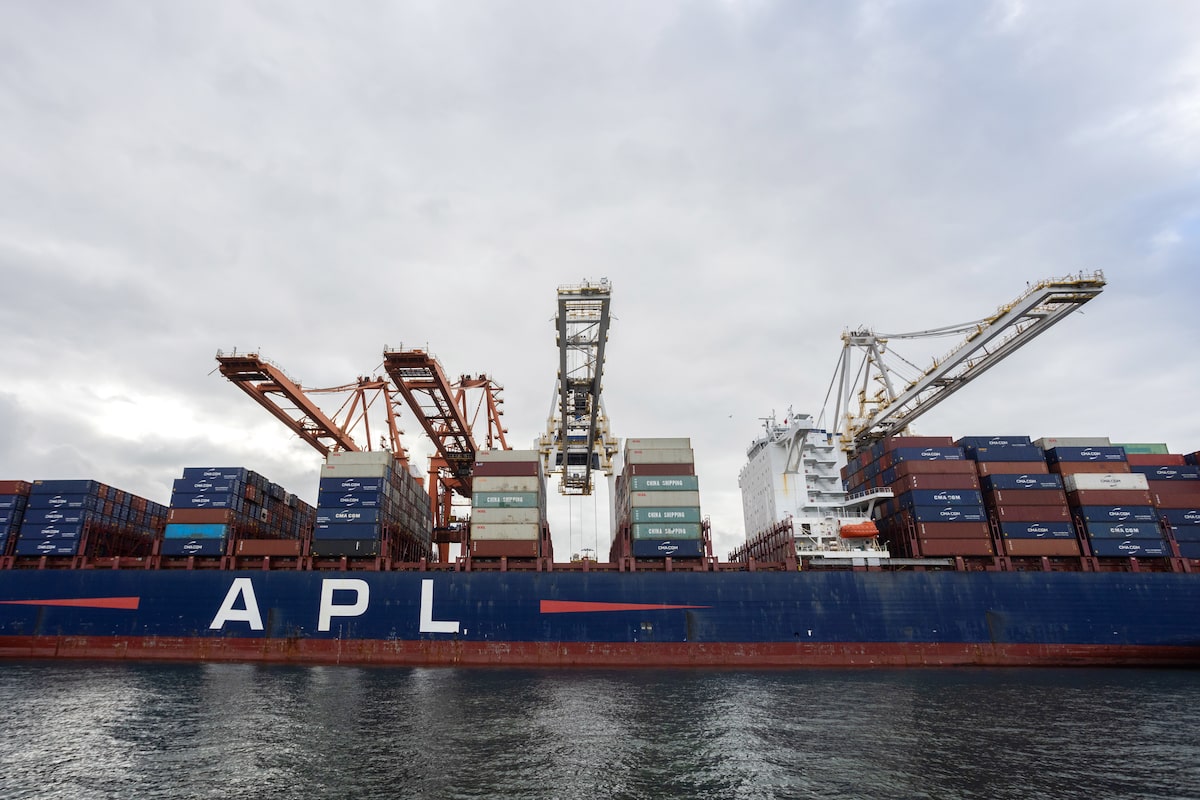A container ship is seen docked at a shipping terminal in the Port of Vancouver. Since Ports Canada Police was disbanded in 1997, port security has involved a patchwork of groups that lack resources to pursue complex investigations.JESSE WINTER/The Globe and Mail
Prime Minister Mark Carney wants to fortify the Canadian economy, but there is a big hole in his plan.
His nation-building agenda, launched in response to a U.S. trade war, includes fast-tracking critical infrastructure projects, enhancing border security and finding new foreign buyers for Canadian exports.
As the Carney government prepares to make a “generational investment in Canada” as part of the federal budget on Nov. 4, it must rectify a long-standing problem that jeopardizes its goals: Our country lacks a dedicated port police force and criminals are increasingly exploiting that glaring gap.
Back in 1997, Ottawa eliminated the Ports Canada Police. Since then, port security has involved a patchwork of groups including port authorities, private security and various police forces that lack resources to pursue complex investigations.
That’s a problem, because Canada is home to more than 550 port facilities, including those in Vancouver, Montreal and Halifax, that handle more than $250-billion in imports and exports each year, according to federal statistics.
Proposals to expand port facilities are included in Ottawa’s major projects lists, giving new impetus to fix this flaw.
Experts say the problem has already caught the attention of the Trump administration. As a result, it could prove to be a stumbling block in the forthcoming renegotiation of the United States-Mexico-Canada Agreement, or USMCA.
The fight to preserve North American trade is just beginning: A guide to the USMCA renewal talks
“Most of our product from overseas comes in by boat and a lot of it is transshipped into the United States,” said Peter German, a lawyer and former RCMP deputy commissioner for Western and Northern Canada, in an interview.
The sheer volume of goods entering and leaving the country means that “only a small percentage” is examined by the Canada Border Services Agency, or CBSA. Referrals are certainly made to the RCMP, but the force is already overstretched.
Although Canada is planning to spend $1.3-billion to bolster border security, including $667.5-million for the RCMP and $355.4-million for the CBSA, much of the focus appears to be on the land border and airports.
Yes, Ottawa does plan to expand the remit of the Canadian Coast Guard to include security patrols on the water. But that is not a substitute for uniformed police stationed inside ports.
Mr. German, who argues that port policing is pivotal to national security and economic stability, co-authored a report, entitled Policing Our Ports, for the city of Delta, B.C., in 2023.
Among the report’s shocking findings: Transnational organized crime groups operate inside Canada’s ports because of relatively lax security clearance while city police need permission to enter those facilities.
“Law enforcement is never a central issue for government,” Mr. German explained in our interview. “So, there’s never a pro-active strategy. It’s always reactive and it’s always insufficient.”
Ottawa, though, can no longer afford to ignore this issue.
FBI director Kash Patel has singled out Vancouver, highlighting its various connections to global distribution routes, as a weak link in America’s fight against fentanyl. Rightly or wrongly, Mr. Patel’s concerns appear to resonate with the White House.
Importantly, domestic calls to reinstate national port policing predate Mr. Patel’s public pronouncements on the matter.
Municipal and provincial officials in British Columbia, for instance, have mounted campaigns in recent years citing concerns that Hells Angels, various Asian gangs and Mexican cartels are infiltrating port facilities and trafficking in stolen vehicles, guns, narcotics and other contraband goods.
A lack of dedicated port policing could also thwart Canada’s broader ambitions to diversify more of its trade away from the U.S.
As I’ve argued in a previous column, the prevalence of trade-based money laundering, a form of financial crime that uses falsified trade transactions to wash criminal proceeds, will make it harder for Canada to sign new trade deals. It has become de rigueur for countries to use trade and customs agreements to fight financial crime.
Now consider this: Canada and Mexico last week signed a pact to deepen trade ties and investment, including in ports.
The Globe and Mail reported in a separate story that modernized Mexican ports, potentially funded by Canadian investments, could provide a shipping route for Canada-Mexico trade that bypasses the U.S.
Explainer: What’s included in Bill C-2, the border security bill
The optics are poor, however, if Ottawa fails to remedy lapses in its own port security. It could well become a sticking point with Washington ahead of USMCA renegotiations.
Said Mr. German: “The Americans are watching this.”
Indeed, the U.S. Department of Homeland Security contacted Mr. German about his report. Ottawa, meanwhile, showed no interest.
Port authorities and the unions representing longshoremen face a conflict of interest because security comes at the expense of commercial activity.
The near 30-year absence of a federal force devoted to port policing is the missing link in Mr. Carney’s plan to strengthen Canada’s economy and safeguard its sovereignty. This is the time for Ottawa to take back control.

